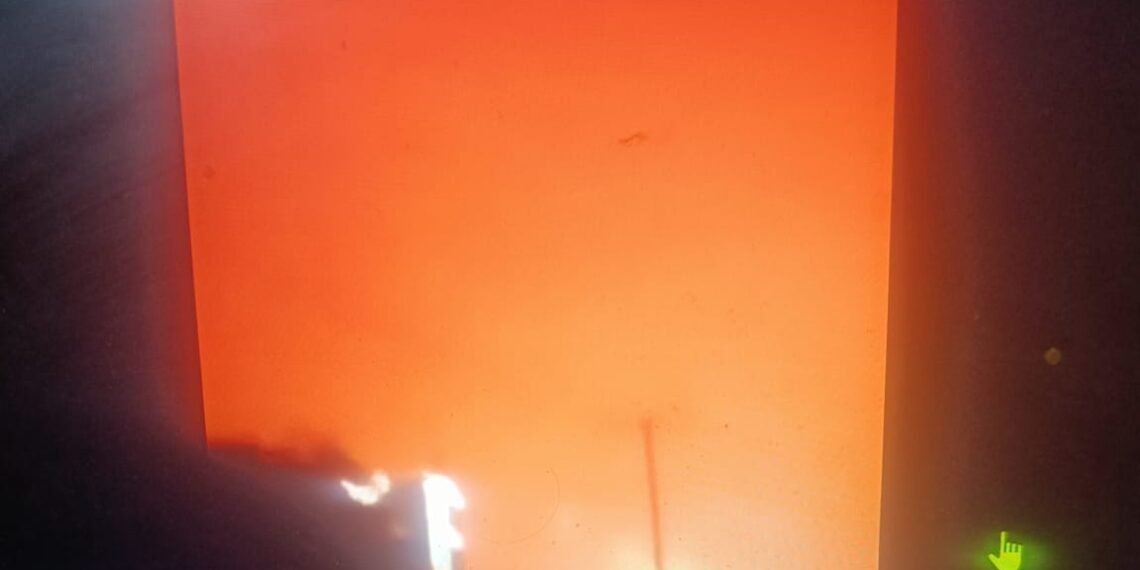BY PC Bureau
New Delhi/Islamabad, May 7, 2025, 06:42 AM IST – At least 17 terrorists were killed in India’s ‘Operation Sindoor,’ launched in the early hours of Wednesday, May 7, including high-value targets.
The precision strikes on nine terrorist camps in Pakistan and Pakistan-occupied Jammu and Kashmir (PoK), a direct retaliation for the April 22 Pahalgam terror attack that claimed 26 civilian lives, has escalated tensions, with Pakistan condemning it as a “blatant act of war” and promising a robust response.
The Indian Armed Forces, in a coordinated operation involving the Army, Navy, and Air Force, targeted terrorist infrastructure in four locations in Pakistan—Muridke, Bahawalpur, Sialkot, and one undisclosed site—and five in PoK, including Kotli, Muzaffarabad (two sites), Gulpur, and Bhimber. Codenamed ‘Sindoor,’ symbolizing the red vermilion of resolve, the strikes at 1:44 AM IST responded to the Pahalgam attack, which India attributes to Pakistan-based Jaish-e-Mohammad, led by Masood Azhar. The Defense Ministry described the operation as “focused, measured, and non-escalatory,” targeting only terrorist sites to avoid Pakistani military or civilian infrastructure.
India has just launched a missile strike on Pakistan
Pakistan vows to retaliate
It’s a full-on war now.https://t.co/Yye6vBC8Vr pic.twitter.com/kHlsTiYOVw
— Mark. (@Markmaycott2) May 6, 2025
MUST READ: India Hits Nine Terror Camps in Pakistan, PoK; Tensions Soar
Indian sources claim the strikes killed 17 terrorists, including possibly senior Jaish-e-Mohammad operatives, and injured 60 others, with all nine targets destroyed. Unverified posts on X speculate that among the dead are key planners of the Pahalgam attack, though official confirmation is pending. Videos of precision hits, showing explosions at terrorist camps, circulated widely on social media. Prime Minister Narendra Modi monitored the operation from a New Delhi war room, while National Security Adviser Ajit Doval briefed counterparts in the U.S., UK, Russia, Saudi Arabia, and the UAE. Defense Minister Rajnath Singh celebrated the operation, posting on X, “Victory to Mother India! Bharat Mata ki Jai!” The Indian Army tweeted, “Justice is served. Jai Hind!”
Pakistan’s Response
Pakistan’s Prime Minister Shehbaz Sharif denounced the strikes as a “heinous violation of Pakistan’s sovereignty” in a televised address, calling them an “act of war.” He vowed retaliation “at a time and place of our choosing” and suspended all diplomatic engagements with India. Sharif convened an emergency National Security Committee meeting, ordering heightened military readiness along the Line of Control (LoC) and the international border. On X, he wrote, “India’s reckless actions threaten regional stability. Pakistan will defend every inch of its soil.”
Pakistan reported eight deaths, including two children, and 35 injuries in Muzaffarabad, claiming the targeted sites were civilian areas—a claim India dismissed. Residents reported power outages and panic following the explosions. Pakistan’s military claimed to have shot down three Indian jets—one in Bathinda, Punjab, and two in Indian-administered Kashmir—but Indian Air Force sources denied this, confirming all pilots are accounted for. Heavy cross-border shelling along the LoC in Bhimber Gali followed, with Pakistan’s artillery fire killing three Indian civilians, prompting Indian retaliation.
#Breaking Huge : INDIA STRIKES PAKISTAN : INDIAN GOVT CONFIRMS AIR STRIKES ACROSS MULTIPLE CITIES IN PAKISTAN #PahalgamTerroristAttack #PahalgamTerrorist #IndiaPakistanWar #War2 #IndoPakBorder pic.twitter.com/0vN2llVU9I
— Zamreen Farooq (@zamreenfarooq) May 6, 2025
Pakistan’s Defense Minister Khawaja Asif warned of a “befitting reply,” and military sources reported defensive strikes in Kotli and Muzaffarabad. Lahore authorities declared an emergency, and schools in Jammu, Samba, Kathua, Rajouri, and Poonch in Indian-administered Kashmir were closed. Pakistan’s actions—suspending trade, closing airspace to Indian airlines, and shutting the Wagah border—signal further escalation.
Regional and International Context
The strikes follow the Pahalgam attack, the deadliest on Indian civilians in nearly two decades, which inflamed the Kashmir dispute. India’s intelligence identified 42 terrorist camps in PoK, with Bahawalpur linked to Jaish-e-Mohammad. The NSE Nifty 50 index dropped 1.19%, and airlines like IndiGo canceled flights due to airspace closures. Pakistan’s KSE-100 index also fell sharply.
The international community urged restraint. UN Secretary-General Antonio Guterres called for “maximum military restraint,” while the U.S., China, Russia, and Saudi Arabia pressed for de-escalation. Russian Foreign Minister Sergei Lavrov advocated dialogue under the 1972 Simla Accord. Iran offered mediation.
Current Situation
As of 06:42 AM IST, cross-border shelling continues along the LoC, with both sides on high alert. In Jammu and Kashmir, locals chanted “Indian Army Zindabad,” while in PoK, residents expressed fear amid military activity. Speculation about the identities of the 17 terrorists killed fuels discussions on X, with unverified claims suggesting a major blow to Jaish-e-Mohammad. The Indian Defense Ministry plans a briefing later today. With Pakistan signaling retaliation, the region braces for potential escalation between the nuclear-armed rivals.













